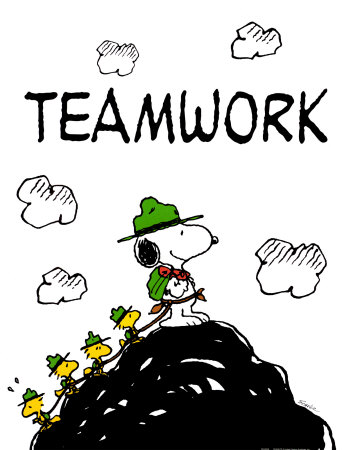This is my letter to a parent who wrote to ask how their
son/daughter
was doing in school and what they could do to improve their
grades.
Dear Parent,
University faculty are
forbidden from communicating grades or other
education information to the parents of college students
according to
the Family Educational Rights and Privacy Act (FERPA).
Kutztown
University
is
very
strict on this point. I'm even stricter
because I will not even acknowledge whether or not a person is a
college
student because adult students have a right to privacy.
Here’s my advice to all
Kutztown
University students who are having difficulty in college
courses:
Study
 You're not supposed to just hear things in
lecture and
then know stuff
You're not supposed to just hear things in
lecture and
then know stuff
- Schedule a
daily time for homework and make that an
inviolable personal time for focusing on work. If a
student
really focuses during their study time, they really only
need two or
three hours every day to succeed in college.
- Some people
benefit from compartmentalizing their
lives even further. Having a schedule for each day of
the week
and sticking to it will actually help you find more free
time for
sports/computer games/reading/relaxation because you’ll be
more
efficient overall.
- If you live in
a party house or have distracting roommates,
become a library squatter. The library has many
isolated rooms
for students to hide out in and study. Find one that
you like and
make use it regularly. Most people are creatures of
habit, so a
room that you find open could well be regularly open at that
time. Consider changing roommates - then you'll have
the option
of peace/quiet and you can always visit your party pals in
your spare
time.

Share the experience
You're not alone in the world
- Make a study
pact with a peer in your class.
Don’t pick a partner because they’re pretty/handsome/fun,
rather try to
connect with someone who is also motivated to do well in the
class,
even if that person isn’t the “class brain.” Having a
good study
partner helps a lot because you’re in the same boat together
and each
have a responsibility to the other to do the
work.
Get Help
The whole
point of college is to help you learn - othewise you
could just read books!
- Don’t be
reluctant to visit your professor for help
during their office hours. That’s the whole point of
having
office hours!
- Arrange for a
regular meeting time with a
tutor. Kutztown
University
provides free tutorial services for
almost every class. The university pays qualified
students to
tutor, so there is no cost to the student in need of
help. This
is part of Kutztown University’s program to promote student
success.

Plan your approach
Fools run
blindly, headlong in the darkness... sometimes that works,
but...
- Set specific,
achievable goals for yourself.
Start with a few short term goals that are relatively easy
to achieve,
but require some effort. Success with those
achievements will
give you confidence that will enable you to pursue bigger
goals.
Working toward a specific goal is
much better than wandering aimlessly.
- Be careful in
scheduling your classes each
semester. Avoid taking more than three lab courses in
a
semester. Mix “light duty” classes with “work-heavy”
classes. For example, if you're a science major and
your hobby is
history, take a history
course to cover your general education requirements during a
semester
when you’re taking a really hard math or science
course.
Conversely, if you're a history major and amateur scientist,
take your
science gen ed course when you have a lot of tough load of
history
classes. The key
is to balance
your
load.
- Meeting with
your academic advisor to
make a plan for your full college career is smart because
you’ll be
able to distribute the workload evenly across semesters and
so have a
greater chance of success.

Assess your life
goals
Maybe you're
an Einstein of something else
- If I were a
student who continued to fail semester after
semester, then I’d ask myself if I was in the right
major. Many
(most?) of us choose a major for reasons not
particularly well thought out. Some marine science
majors, for
example, really just want to swim with dolphins, whales, or
sharks and
are truly
interested/entertained
by the mysteries of marine science, but they aren’t really
interested
in the careful hard work involved with doing
scientific research. There’s a big difference between
watching
the Discovery Channel and training to become an actual
scientist.
At some point, we each must ask
ourselves what we really want to do
with our lives – what we want to dedicate a
significant portion
of our
lives to (career-wise). The answer to that question is
a
balancing of what we find interesting, what we find
enriching/fulfilling, what we have talent doing, and what
opportunities
are likely to exist upon graduating. If a student has
two full
years of failing grades, I would strongly recommend they
consider
changing majors to something that really interests
them. If
they’re truly interested in a subject, that interest will
drive them to
do the work
necessary to succeed.
In any case, that’s my advice.
Sincerely,
Kurt Friehauf
 You're not supposed to just hear things in
lecture and
then know stuff
You're not supposed to just hear things in
lecture and
then know stuff You're not supposed to just hear things in
lecture and
then know stuff
You're not supposed to just hear things in
lecture and
then know stuff

